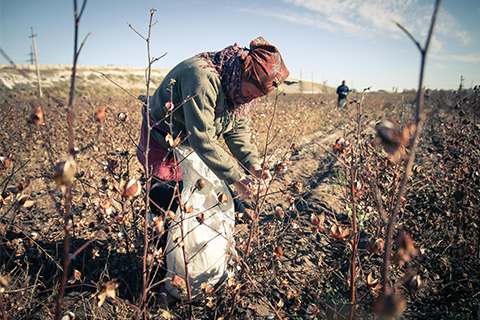
When we think of labor abuse in the apparel supply chain, we often first think of the exploitation of garment workers, the people who cut and sew our clothes. But forced labor can begin even earlier in the supply chain of the raw materials — such as cotton — used to produce garments.
The apparel supply chain has many tiers, from cotton farmers to ginners to traders to spinning mills to textile mills to cut and sew factories, all the way to brands and retailers, where we purchase our clothes. Spinning mills are the tier of the supply chain where cotton is turned into yarn. It is also the first point in the supply chain where bales of cotton are opened, making it possible for cotton picked ethically and cotton picked with forced labor to mix. Spinning mills have the ability to understand the provenance of the cotton they receive, offering an opportunity to engage them directly on the issue of cotton picked with forced labor.
HU is proud to support a new initiative announced today from the Responsible Sourcing Network to establish Yarn Ethically and Sustainably Sourced (YESS), a working group that will bring corporations, suppliers, and NGOs together to create a single industry-wide verification of spinning mills. We are pleased to see a diverse group of organizations engaging at this less transparent level of the supply chain, and we are hopeful that by working at the spinning mill level we can strive for an apparel supply chain free of forced labor from raw materials to finished garments.